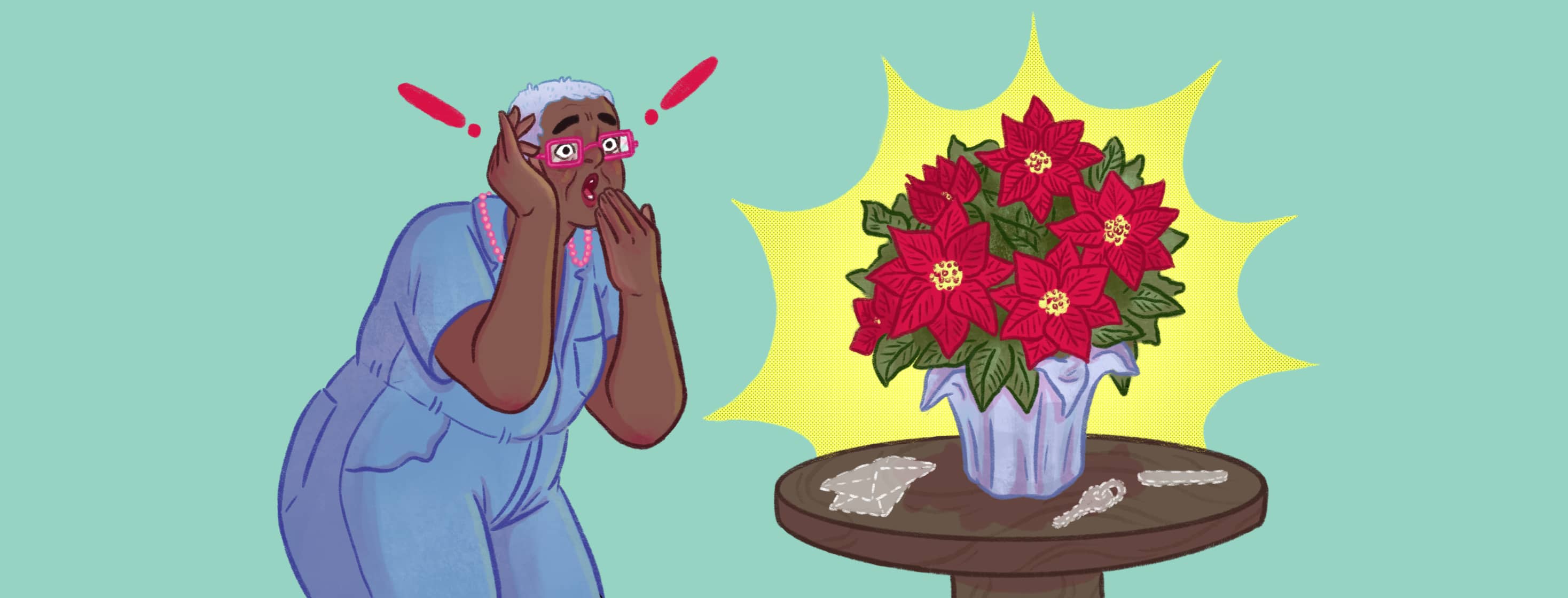Where Did That Thing Come From?
My grandma greeted us at the door to her apartment and as we entered, my mom commented on the lovely poinsettia on her kitchen table. My mom asked where it had come from. My grandma replied, "Oh, I don't know. It just showed up there!"
Knowing she'd been at her assisted living complex's Christmas lunch, I suggested perhaps that was where it had come from, hoping to jog her memory. When she still wasn't sure, we moved along to her other plants, her Christmas decorations, and had a nice visit.
Where did that come from? And where did that go?
Of course, we all put things in that safe place and then forget the safe place. Having ADHD, I'm especially prone to it!
However, usually, the most important items have the most memorable hiding places and we remember them and replace important things, such as passports - religiously, no matter how scattered we may be.
Hiding objects can be a common trait among people affected by Alzheimer's disease, and cause problems for family and caregivers.1
Similarly, short-term memory issues may make it difficult to cement new items in the mind - like the Poinsettia! This can lead to confusion over where an object came from or how it got there. This has to do with the impact of Alzheimer's disease on the areas of the brain responsible for learning new information and remembering it.
"Someone borrowed it"
It's true that different family members may get different glimpses of the Alzheimer's experience, and of course, we can get different experiences day-to-day as well.
For me, at least, I've noticed since my grandma moved into her new building, fewer things are being "stolen". I had wondered before my grandma moved if living in a large, multi-unit complex would have made this issue associated with her dementia worse, but at least in my experience, it has not.
That said, I have heard that things may not be being stolen but instead, borrowed! This is also likely not true, as she has been known to misplace the emery boards that she once declared someone in her building had borrowed.
Even if the result is the same, a non-identifiable mystery person "borrowing" the missing item is a lot less harsh feeling than the delusion things are being stolen. After all, it is much less invasive to think we lent something to someone out of kindness than that someone has entered our space and taken something without our permission.
Not the only one
While delusions related to missing, stolen, borrowed, or misplaced things will always be a part of living with memory loss and Alzheimer's, I have noticed over the past eight months that my grandma is truly realizing she is not the only one experiencing these problems. With her comments like, "I know this is just what my brain does sometimes."
It does not make the reality of being unable to keep track of items any easier to deal with, but when the panic of the moment is over, it is helpful for her to be able to pause and realize that she made it through that moment. Yep, it's just her brain and things externally are fine! That said, I have suggested that when people start giving her a bunch of plants, perhaps they could put one of those little sticks in there with who it's from.
Have you found strategies to help independently-living people with Alzheimer's keep track of their things, or to remind them of where they came from? Tell us in the comments below, or share your story with the community.

Join the conversation